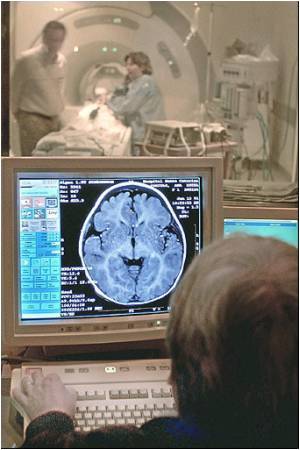
The two teams in close collaboration with Hoffmann-LaRoche (Basel), have now characterised in vitro and then in vivo, the various reactions and intermediate molecules produced in the presence of Prozac, which are eventually responsible for an increased release of serotonin.
In particular, the researchers have identified the key role of one particular microRNA in the active mechanisms of the antidepressants on the brain.
This microRNA, known as miR-16, controls synthesis of the serotonin transporter.
Under normal physiological conditions, this transporter is present in the so-called "serotonergic" neurons, i.e. neurons specialised in production of this neurotransmitter.
In response to Prozac, the serotonergic neurons release a signal molecule, which causes the quantity of miR-16 to drop, which unlocks expression of the serotonin transporter in the noradrenaline neurons.
Advertisement
Ultimately, the quantity of released serotonin is increased both in the serotonergic neurons, via the direct effect of the Prozac which prevents its recapture, and in the noradrenaline neurons through the reduction of miR-16.
Advertisement
"Furthermore, our results demonstrate that the effectiveness of Prozac rests on the 'plastic' properties of the noradrenaline neurons, i.e. their capacity to acquire the functions of serotonergic neurons,"
To elucidate the mode of action of Prozac, the researchers from the Ile-de-France region used neuron stem cells, which were able to differentiate themselves into neurons for manufacturing serotonin or noradrenaline.
The findings were published in the journal Science.
Source-ANI











